I have seen one of the coolest things ever at least in my opinion of the trip. A pod of 7-8 orcas ended up on the starboard side of the ship just before dinner yesterday. It was really great. Plus I wasn’t the only one excited to see some killer whales, some of the Healy crew showed up to see these magnificent mammals too.
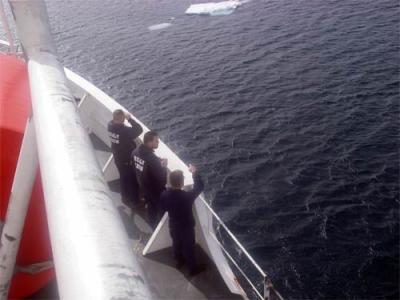 Healy Crew
Healy Crew
A pod of killer whales can attract a few coastguards.
I wasn’t able to get a good shot of them but the one thing that is nice about being on a ship this big. The odds are someone got the moment captured on film. I was right. By this morning, Dave Withrow had a great shot of a killer whale as it glides through the water and Dave Forcucci was able to capture a portion of the pod all surfacing to breathe.
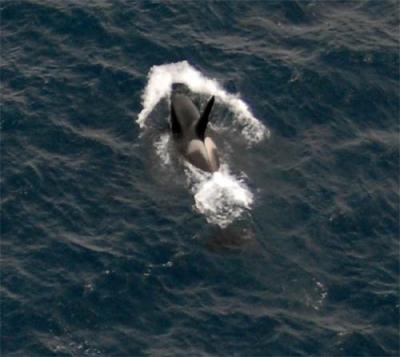 Quick Glimpse
Quick Glimpse
A quick glimpse of the dorsal fin and saddleback. (Photo Courtesy of Dave Withrow)
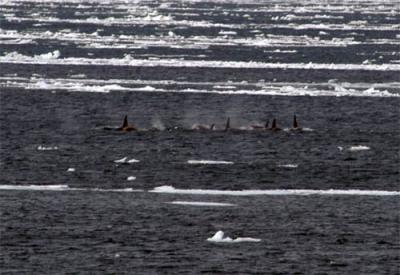 entire pod
entire pod
The entire pod surfacing near the ship.
So at dinnertime, there was talk that we were heading to one of our deepest sampling locations with a depth of 2700 meters. Immediately, Maggie and I were like this is the time to send our Styrofoam items down we had brought along from our students.
So we gathered them up, and I grabbed one of my mesh bags that they could fit into and water could still move through. We asked if they could go on the CTD cast and Scott Hiller, tech support for the CTD, not only said yes but also that he would attach them onto the rosette himself.
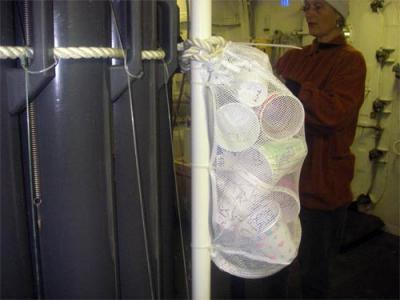 Ready to Go
Ready to Go
The cups attached to the CTD along with Maggie Prevenas also taking pictures of the items before they went down 2700 meters.
The CTD cast took a long time to go down and come back up. The whole time was around three hours because of the depth. The end results are pretty cool. My KIND kids made some predictions to what they thought might happen. So was anyone right? Be sure to think about the science behind the results, and please discuss on Tuesday and let me know.
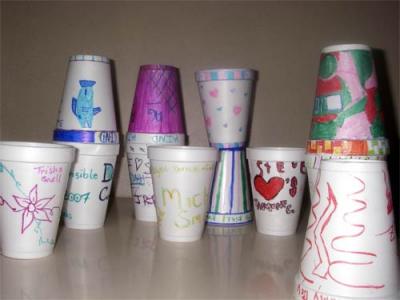 Cups Before
Cups Before
The cups all designed by my KIND kids from the museum that I brought with me.
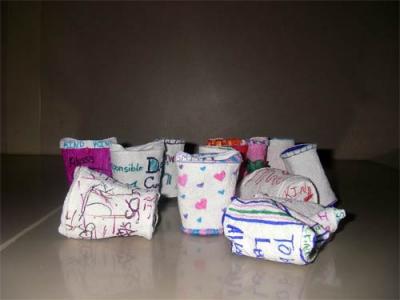 Cups Crushed
Cups Crushed
The same cups after being sent down 2700 meters in the cold Bering Sea.

